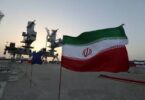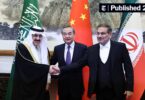Contrary to the high expectations of business community and independent economists, PTI government could not succeed to give workable short term and long term policies in the domain of economy, be it industrial policy, trade policy or agriculture policy.
Trade policy for boosting exports and discouraging unnecessary imports does not revolve around one or two products. It includes wide range of finished goods and primary commodities. Surprisingly, the government is fine tuning an export policy which is textiles specific alone and for that too greater reliance is on presumptions about reducing input cost.
Pakistan will be the only country in the world which will imaginatively expect high growth in exports by relying on a single item such as textiles while not facilitating export of other items of competitive edge and markets diversification.
A draft of textile policy is on the anvil for subsequent approval from the Economic Coordination Committee of the Cabinet wherein an ambitious targets of increasing textile exports to $25.3 billion by 2025 and $60 billion by 2030.
How this quantum leap can be taken to increase textile exports from the current value of $3.47 billion to 9 times more high target within the next five years when the high input cost does not provide competitive edge over the competitors including India, Bangladesh, Indonesia, Vietnam, Thailand and even Cambodia? Not a single cotton crop is grown in Bangladesh but it floods the global market with low price and high quality textiles of over $27 billion.
It enjoys tremendous comparative advantage over Pakistan in textiles by virtue of cheap electricity, affordable gas price, application of latest technology, highly skilled manpower and progressive fiscal and monetary policies. In sharp contrast, in Pakistan electricity and gas tariffs are the highest in the world what to speak of this region, industrial technology is stuck in second generation, skilled manpower is scarce and expensive, monetary and fiscal policies are regressive in nature.
The electricity and gas tariffs are not less than landmines by previous governments elected to blast the economy once and for all. But the present government instead of doing mine sweeping seems bent upon enhancing its lethal dimension by regularly hiking their tariffs.
Some of the salient features of draft textile policy are quite unrealistic such as increasing the per acre yield of cotton by symbolic increase in the minimum support price of cotton like the one approved by the ECC for wheat. High yield and fine fiber varieties of cotton seeds need to be evolved locally with modern plant breeding techniques; decrease in prices of fertilizers and insecticides , and provision of interest free loans have to to small farmers.
How high yield varity of cotton seed can be evolved when the country does not have the required research infrastructure and high caliber experts of plants breeding and genetics? It requires germ-plasma which can be used as starter seed for conducting research for evolving high yield and fine quality fiber seeds for commercial production. The research takes 8-10 years to commercialize the seed production. On the other hand imported seed increase input cost.
The Symid Research Institute of American Agronomist Norman Borlaug had extended valuable technical and professional assistance to Pakistani experts of plant breeding and genetics for evolving high yield variety of wheat seed in the decade of 60s. Will this sort of assistance be sought for in case of cotton? There is no indigenous seed bank to keep germ-plasma and use it for producing high quality seeds locally.
Another astonishing feature of the proposed textile policy is implementation of regionally competitive energy pricing. The government is helpless to review the inflated tariff allowing power purchase agreements with IPPs and remove the capacity trap in these agreements, rein in the running defaulters of electricity bills and upgrade the rag-tag transmission system to bring down line losses.
The massive pilferage, pipeline losses and induction of expensive imported gas in the distribution system has resulted in the unprecedented increase in price. Hence, implementation of regionally competitive pricing system for the textile sector is nothing but day-dreaming.
The on card gas tariff hike and power division directives of January 13 in case of electricity bills for textile sector slams the doors on the possibility of regionally competitive energy pricing. The sayings of father of classical school of economic thoughts Adam Smith, if wishes were horses baggers might have ridden on them, aptly applies to the conceived textile policy.






